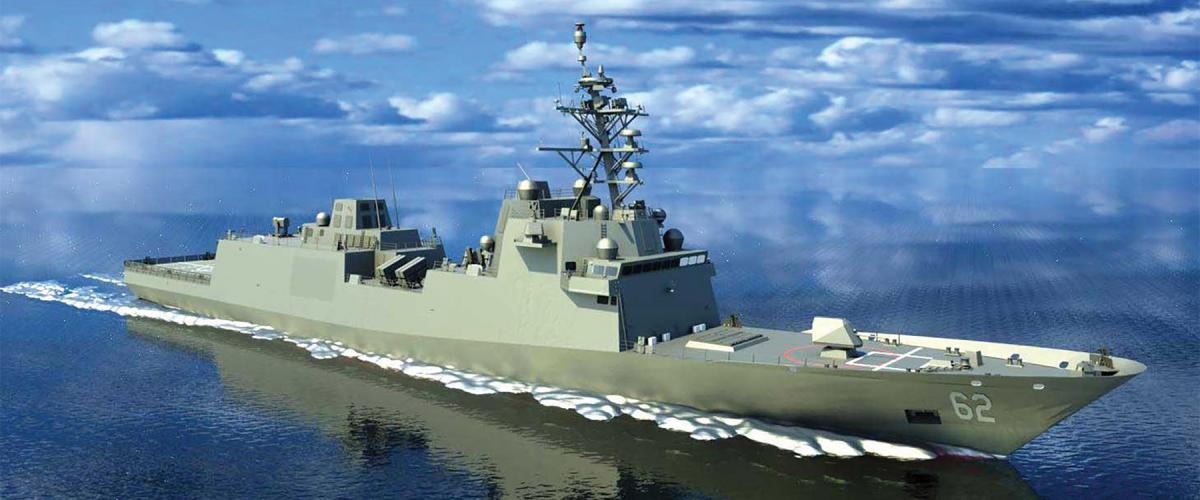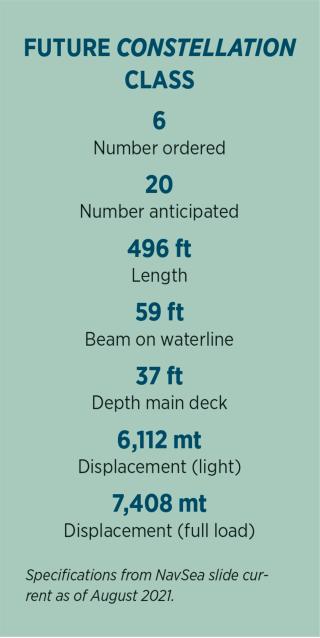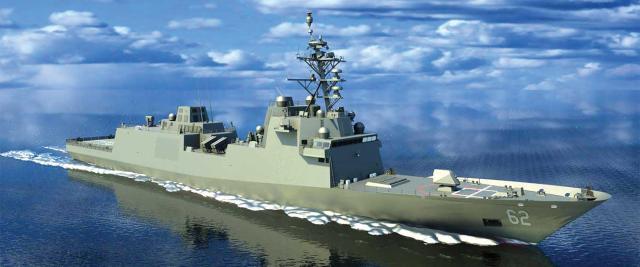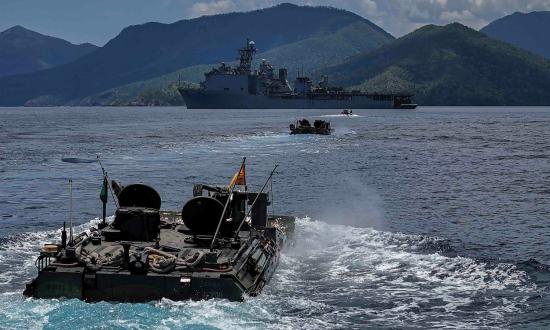The future Constellation (FFG-62), first of the Navy’s new frigate class, celebrated its keel-laying in a formal ceremony on 12 April 2024. That’s the good news.
The bad news is, mere days before the event, the Navy announced that delivery of the ship would be delayed by as much as three years. Despite the pomp and circumstance, the Navy says it has not yet completed the ship’s design. The commander of Naval Sea Systems Command (NavSea), Vice Admiral James Downey, told reporters the ship’s detail design is just 80 percent complete. The Navy says changing contracting roles and workforce issues have caused many of the delays.
But that’s only part of the story. The Navy’s original request for proposals for the ship included a requirement that it be based on a mature parent design—that is, based on a ship already in service with the U.S. Navy or allies. Fincantieri Marinette Marine’s proposal, based on the French-Italian FREMM multipurpose frigate that has been in service since 2012, was selected. The intention was to allow a quick design process that moved rapidly into production.
The design has undergone repeated alterations that have slowed the process. According to an August 2021 briefing document, the FFG-62 is longer (by 24 feet), wider at the waterline (by 4 feet), and heavier (almost 600 metric tons [mt] depending on load) than the FREMM. Numerous other changes have also pushed the design in different directions. A seemingly defensive note on the slide asserts, “All differences shown were proposed by Fincantieri and incorporated into the FFG(X) design.”
However, that does not account for changes made since 2021 that have left the design in the incomplete state Vice Admiral Downey reported. Mallory Shelbourne and Sam LaGrone of USNI News reported in early April that what once was an 85 percent commonality between the parent FREMM design and FFG-62 has shrunk dramatically. In fact, a source told USNI News the ratio has flipped, and now a mere 15 percent will be in common with the original design.







